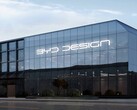While rental giant Hertz is still reeling from its bad investment in 100,000 Tesla rentals at the peak of their pricing, Uber has now partnered with BYD for the same amount of electric cars.
Tesla's biggest competitor BYD will provide 100,000 EVs to the global Uber fleet at "best-in-class pricing and financing." The move comes after Hertz competitor SIXT ditched Tesla ordered a batch of 100,000 BYD cars in its turn.
BYD's pricing and finance rate deals could be very enticing for Uber drivers, while the Chinese juggernaut will gain exposure and showcase its cars, as well as its autonomous driving technology, to way more people than with direct sales.
After all, the European Commission is preparing to slap a 17% import tariff on its cars, on top of the already existing 10% tax, so this could be a smart way to advertise the virtue of its electric vehicles to many different people.
While Uber drivers are going electric five times faster than private car owners, driver surveys show the price of EVs and availability of financing remain the key barriers to switching. In addition to their affordability, BYD vehicles have lower costs of maintenance and repair, and are well suited to rideshare due to the wide range of models, superior battery performance, and excellent build quality. To support drivers going electric, the companies’ joint efforts may also include discounts on charging, vehicle maintenance, or insurance, as well as financing and lease offers, based on what works best for drivers in a given market.
The BYD-Uber partnership has more chance to work than the Tesla-Hertz tie-up, because the prices of BYD's electric cars are now at their lowest, while Hertz bought at the peak.
During its Q2 earnings presentation, Hertz said that it will accelerate the sale of its Tesla cars so that it can offload most of them by the end of next year, and lower the monthly per-unit depreciation rate of its fleet from $600 to $300 in 2025.
This means that another batch of "tens of thousands" of used Tesla cars from its rental fleet will be hitting the market at greatly discounted prices soon, depressing the residual value of electric vehicles further.
Back in 2021, Hertz signed a $4.2 billion deal for 100,000 electric cars with Tesla, which at the time was flying high on record EV prices. Since then, however, the price of new Teslas has been slashed repeatedly, and Hertz very quickly incurred a significant loss on that investment.
When adding rental car depreciation as well as the maintenance difficulties, Hertz's fleet electrification efforts sent it so deep into the red that its CEO was ousted. Hertz has now embarked on a 50% off fire sale of its Teslas, with the Model 3 often going for less than $25,000, contributing to an already depressed used EV market.
Get the Tesla Universal Wall Connector EV Charger with Dual Plug on Amazon














